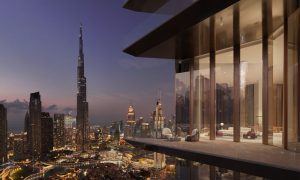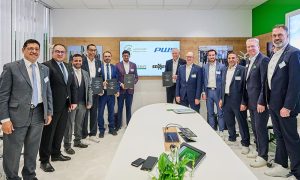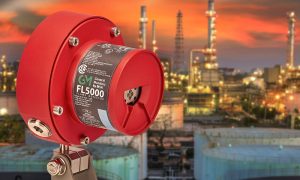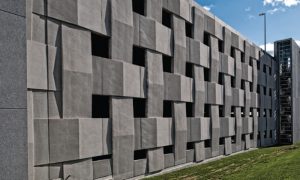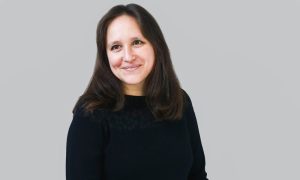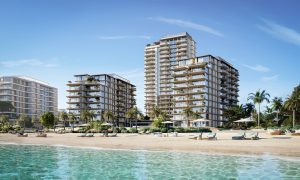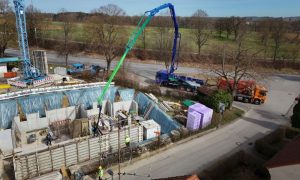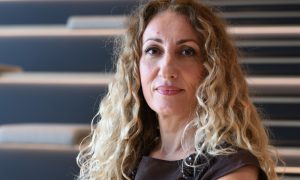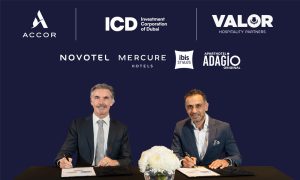Interview: Dr Rashid Alleem, chairman of the Sharjah Electricity and Water Authority (SEWA)
The man tasked with transforming the authority explains The SEWA Way
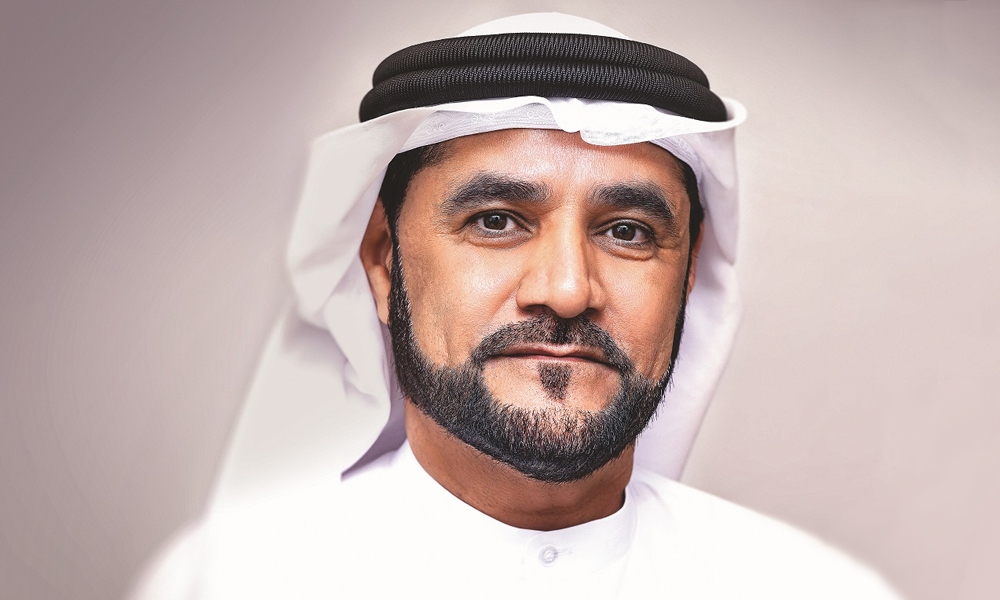
One of the most common stereotypes around the world is that government entities, no matter what country they’re from, are mired in bureaucracy and inefficiency, often resulting in business being done at a snail’s pace across all levels. While it’s understandable that these departments – which often have staff in the high thousands and deal with massive, complex projects – have a number of considerations and obligations to check off before they can reach a decision, it doesn’t alleviate the frustrations of those who have to deal with them on a regular basis.
These issues have also been encountered in this region, though considerable efforts have been made to improve performance and functionality in recent years, especially in the UAE. Given the ambitions and targets of the country’s leadership, it comes as no surprise to see that considerable investment and planning has gone into improving local entities, whether through the introduction of smart apps, the streamlining of organisations or training and improving staff.
It is because of this desire to improve and evolve that His Highness Sheikh Sultan bin Muhammad Al Qasimi personally brought Dr Rashid Alleem on board as chairman of the Sharjah Electricity and Water Authority (SEWA) in April 2014. In four years, he has turned around the utilities provider, from an organisation facing significant financial and administrative challenges to a smoothly operating government entity that has become a benchmark for the entire region.
“Before chairing SEWA, I was in charge of chairing four big departments, successfully, for almost a decade. These were Sharjah International Airport Free Zone, Hamriyah Free Zone, Sharjah Sea Ports and Sharjah Customs. I was the only person in the recent history of Sharjah who had been given such trust by His Highness to chair these big organisations, and during my 10 years all of them turned a profit and out-performed other organisations.
“However, SEWA was going through a terrible time and there was a need for leadership change, as well as in management style. His Highness wanted to affect a transformation and bring in a quick change so as to overcome the financial and administrative challenges that the organisation was facing. I was hand-picked by His Highness to chair this organisation and to make sure that we do things together to go through this transition.
“He wanted to move the organisation from being a solid and government-owned entity to a corporate culture where it’s run like a private company. That wouldn’t have been possible without guiding principles, so with that in mind, I proposed to His Highness 15 guiding principles, starting with the most basic thing – the internationally known language that I call the Smile Language.”
These 15 guiding principles have formed the bedrock of Dr Alleem’s quiet revolution at SEWA, and are so influential to him that he has actually written a book built around them. In The SEWA Way, he outlines how they inform his management and leadership, and translate into a comprehensive set of operating practices, business strategies and cultural norms for his organisation.
“We have almost 180 nationalities living in Sharjah and we need to bring them all together. I wanted to engage society by creating a customer-centric organisation, not one that is price- or project-driven. That needs to be culturally accepted, so we needed to go through a very well-structured change management strategy.
“It’s not about the software or the hardware [that you use], but it’s about the brain-ware of the people, to really reprogram them to get to where we’re going. That can’t be done without engaging your employees and the community, which is not an easy task for any manager or leader to engage in. We’re talking about more than 4,800 employees, and then you’re serving 1.5 million people living in Sharjah. They all need your services, day and night. Their electricity has to be available 24/7, as well as their water and gas.”
This was easier said than done, however, as he explains that one of the earliest challenges he encountered during the transition period was sharing his vision with SEWA’s employees, as well as the city’s population. It was crucial to clearly communicate the new vision, he says, but equally important to reassure the community that they wouldn’t be negatively affected by the changes, particularly with regard to prices.
“The community needs services that are sustainable and not overpriced. That is the last thing I want, so striking a balance between commercial and social elements was the biggest challenge, I think. We told them that they wouldn’t be overcharged because they’re part of the federal system, and reassured them that whatever the Federal Electricity and Water Authority (FEWA) charges are, we’ll charge the same price. That gave them a level of comfort,” he relates.
In addition, Dr Alleem introduced new measures and procedures to help improve SEWA’s image within the community, starting with a process he calls ‘Seeing through our Ears’.
“We are the only utilities organisation that has a Customer Listening Centre. We don’t even call it a call centre, it’s a listening centre that operates 24/7. We don’t close it after 5pm or during Eid or any public holidays. We’re available to the people 24/7, in case they have any ideas or complaints.
“One of our communication methods is to see through our ears. We listen to our customers. In fact, we have a platform on our main website called ‘Communicate with the SEWA Chairman’, where people can communicate with me directly. It comes directly to my office and within less than 48 hours, we solve the issue as best we can. Some of them, we solve right away. Everything comes to me, and so far, since we’ve started this initiative – and it’s been a year and a half now – we have exceeded 3,500 emails. They come directly to me, and the full executive office works on them, both in English and in Arabic.
“That’s another thing that is there in our organisation – we have 19 different languages. If we get a call from someone who speaks Swahili, for example, then we even have a person here who could work on that customer’s problem. This is very seldom seen in the utilities business, especially since we don’t have competitors in the city, but this is because we really want to be close to our customers. We have created facilities here where people can request to speak to staff in their own languages – we want people to be comfortable,” he asserts.
Of course, SEWA is first and foremost a utilities provider, and Dr Alleem’s focus on the development of Sharjah’s utilities infrastructure hasn’t changed, even as he works to revamp the organisation’s culture and management structure. He points out that the focus is firmly on the continued development and delivery of the Hamriyah and Layyah Power Plant projects, and on ensuring that Sharjah’s future growth and development plans are strongly supported by SEWA.
“[As a utilities provider], you are driven by demand, so you need to prepare for the future. Reading the demand, we need to build more substations, lay more cabling and build more banks and tanks. You also need to optimise existing assets that you have, so that they’re ready to go whenever you need them.
“We’re living the growth, we’re living with society and we are part of it. We coordinate very closely with the Planning Department, and in fact I’m a board member on the Sharjah Planning Council so as to make sure that everything is well coordinated and planned.
“The focus is first on the Hamriyah Power Plant, where we’re building the first IPP – independent power plant. The second is the Layyah Power Plant. Hamriyah is about 1.5GW, while Layyah is about 1GW. This is what we need to satisfy future demand and needs.”
These power plants are also an important part of Sharjah’s stated ambition to achieve electricity self-sufficiency by 2021, Dr Alleem adds, having previously pointed out in interviews with national media that the growth rate for the country, especially Sharjah, reached 5% in 2016, with the same expected this year and in 2020, because of the impact of Expo 2020.
As such, the emirate needs power self-sufficiency to keep up with the growing population, which is set to reach nearly two million people by 2020. The Hamriyah Power Plant is being developed in three stages, with stage one scheduled to be ready by 2019, followed by stages two and three in 2020 and 2021 respectively. The independent power plant will be developed on the basis of a build-own-operate-transfer model. Furthermore, SEWA has signed an agreement with Sharjah National Oil Company to supply gas to meet the demand for power generation.
When asked about progress on these projects, Dr Alleem says work is progressing well on the IPPs, but is reluctant to divulge further details at present.
“We’re working day and night on the agenda – there’s a lot of work on the ground, but we want to announce when we have something tangible there. We don’t want to just announce something when we have only hot air,” he remarks candidly.
However, when it comes to supporting Sharjah’s economic growth, he is openly vocal about how he sees SEWA as a crucial support in attracting foreign investment to the emirate.
“In economics, there’s a saying that goes, ‘You and I travel by train, but investors travel via infrastructure.’ When there’s infrastructure, it’s one of the USPs for investors. We have industrialists living here – almost 48% of all industries in the UAE are based in Sharjah, and we have two free zones that attract indirect investment as well. So when you’re providing the three necessities – water, electricity and gas – around the clock, then that’s a selling point for them.”
Part of this commitment to providing support to investors and industry includes embracing the use of technology across the organisation, particularly on the emirate’s energy grid, he adds.
In the wake of the UN publication of a list containing the 17 Global Goals of Sustainability in September 2015, he says governments around the world have begun taking the adoption of technology in the utilities sector much more seriously, as they realise it can help them achieve their sustainability targets in a cost-effective and timely manner.
“Goal number six talks about the water management and sanitation programme, while goal number seven talks about renewable and efficiencies on energy. It was a call from the UN, telling the whole world to wake up. We have Vision 2030 and we need to work together,” he says.
“The energy sector and the water sector are going to run through massive challenges, so we need everybody. There are 197 global leaders who have approved those goals, so this has become a global agenda now and everybody knows that [utilities] is going to have a tough challenge in the years to come. The way out is to adopt the principles of sustainability, efficiency and smart grids.”
To that end, in April this year, SEWA began implementation of an integrated plan to replace old meters in a number of commercial and industrial areas with new smart meters. This came in the wake of completing the installation of 48,000 smart meters across various points of the city, a project that will provide accurate readings and results about energy and water consumption, while also creating a smart grid for the authority to effectively manage resources and plan for the future.
“To have a smart grid, you need to have smart meters in your system to give you precise readings. These give you the precise historical data about the consumption in each unit, it’s very critical for our grid,” he explains. “[Adopting smart city technologies] is a global initiative, but the agendas are different. The goal may be the same, but the way you achieve that goal is varied. This is part of the smart offices plan that we’re moving towards, where you can see how much energy you can save. We will give users credit, which in turn creates more engagement with both employees and customers.
“This is one of the things we’re teaching society. A small device which you can connect with anywhere on the globe. You can go through the app and it tells you whether your air conditioning is running or not, whether you’ve forgotten to switch it off, what the temperature in the room is and so on. It even tells you to change the temperature, if necessary. It is pretty much controllable. This is part of the smart cities or smart grid plan,” he outlines.
This approach towards engaging customers and employees with smart utilities technology is mirrored in Dr Alleem’s approach towards sustainability. While he’s complimentary about the efforts being made across the UAE, especially by government bodies, to adopt sustainability standards and practices, he is keen to stress that sustainability should be looked at in a holistic manner – rather than just focusing on environmental impact, sustainability standards need to take into account other contributing factors.
“Sustainability is a misunderstood word in the world – people feel that sustainability is just about green initiatives, and that’s wrong. It’s just part of it. Sustainability is about society, the economy and the environment. These three pillars have to have the same weight. You cannot focus on only the environment and say that you’re sustainable, just as you can’t focus on society and say the same thing. If you want to declare that you’re a sustainable economy, organisation or corporation, then you have to have the three pillars working together. They have to dance together at the same speed, they have to move together.”
He explains that SEWA works on a scheme that ensures that every machine, whether a small pump or a large turbine or generator, is built with sustainable materials right from the beginning by a trusted global brand with sustainable suppliers and vendors.
“At the same time, we try to bring in the most efficient machines that don’t release too much CO2 into the atmosphere. You don’t want to have unsafe plants next to where people are living. In case something goes wrong with those machines, they should shut down and don’t expand the problem to the outside. When it comes to safety, we try and get the safest machines that we can.”
Having signed up with more than 35 global brands, and working directly with the likes of GE, ABB, Schneider Electric, Siemens, Samsung and LG, Dr Alleem insists that SEWA and its partners remain committed to working to international best practices.
“We have been certified by the UN Climate Change office for conserving more than 1.7 million tonnes of CO2 through the measures that we’ve taken, from something as basic as solar driven street lights, all the way through to using the most efficient machines. Even the specifications for the gas which is supplied to our machines is to international standards.
“So, for such things, we’ve been recognised internationally. Besides this, we issue a sustainability report every year, which no organisation in the whole government of Sharjah does, or goes to that extent. We don’t need to do it, but we want to show that we’re committed to the environment and to having a health society living around here.”
Part of this commitment to best practices also includes ensuring that SEWA continues to develop into an organisation that is efficient and agile, capable of working quickly and providing the best solutions in a timely manner, he says.
“We believe in agile project management, and value engineering comes under the theme of agile project management. But no one can do it alone. You need someone who’s done it before or is more mature with it. We have agreements in place with international consultants – some of them have been 100+ years in the business. Take GE, for example, we use them for mega projects, to give us their opinion about how we’re doing on the project, and where value engineering can be added. We discuss how we can be agile on the system, where efficiencies can be implemented.”
This attitude towards learning from partners is continued within the organisation itself, with Dr Alleem emphasising how he is keen for SEWA employees to continue to learn and grow professionally within the organisation. This is one of his key 15 guiding principles, and something he is extremely proud of being able to to see take root.
“I have built what I call SEWA A, or SEWA Academy, which is a fully-fledged in-house training set-up that teaches employees, both technical and non-technical, engineering and non-engineering, financial and non-financial courses for the 4,800-plus employees that we have. Plus we have tie-ups with local, regional and global universities. We have reached out to Cambridge, UK, to teach our next generation of leaders, to teach them the latest leadership and management skills. Through the academy, we’re preparing the leaders to come through,” he states.
“As for myself, I give coaching and mentoring to those who join us at a younger age. Our induction programme is one of the longest, it goes over the course of a year! That’s how long the job orientation takes. They go to each corner of the organisation. If you’re an engineer, you could spend a couple of weeks working at the purchase department. Then you go to maintenance and then to on-site. You go to the Listening Centre, you work with customers. I want people to know about every corner of the organisation that they’re going to work for.”
By establishing this identity and culture throughout all levels of the organisation, he has seen SEWA become a respected benchmark for the entire region over the course of his tenure. He says a number of organisations, both within the UAE and abroad, have visited Sharjah to see how the authority implements and develops its philosophies and staff.
“The culture we’re creating in SEWA is, I would say, one of the best in the country. We’ve seen a lot of organisations within the country and even from abroad; they come here to see what type of philosophies we have when it comes to leadership, management and technical aspects. We’ve received delegations from different parts of the world. The last was from Saudi Arabia and we’re expecting a delegation from Jordan, that’s how far we’ve reached. We even have a couple of students in from Oman for engineering training. It feels good that we’ve become a benchmark for others to come and learn from us,” he relates proudly.
“I feel good that we’ve become a benchmark, but we’re still learning. We still go for conferences and programmes, we speak at events. I speak myself, and we discuss the lessons we’re learning – the soft and hard experiences. Almost every week, you’ll see a SEWA team somewhere around the globe, trying to learn. This week, we have a team in Malaysia trying to learn about the latest technologies there, and we have teams going to Germany and the UK after Eid. We do visits and on-site job training, not just here in the region, but around the world.
“The world is looking for great leaders who can make a difference, but it’s about what type of difference you want to make. You have to decide what kind of difference you want to make, and how you can bring meaning to your organisation, to the job you’re doing. You need to lead with your heart and mind, and with your principles,” he concludes, highlighting just how far SEWA has come, and just how much further he intends to take it.






